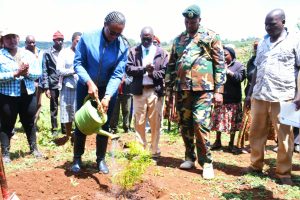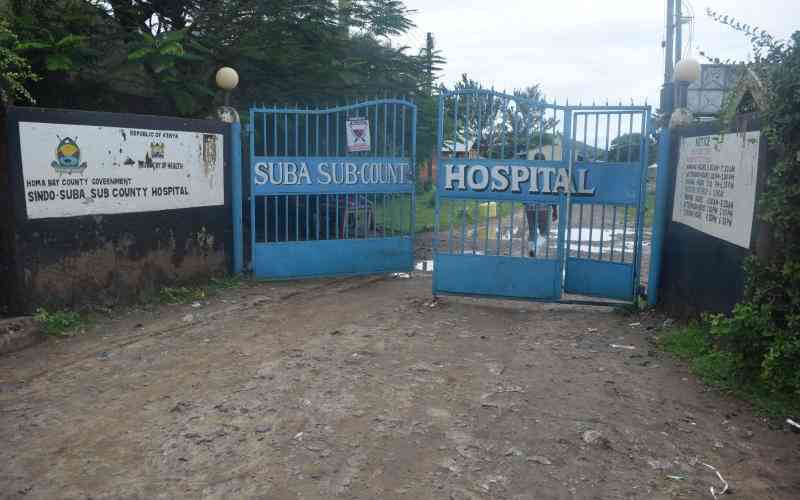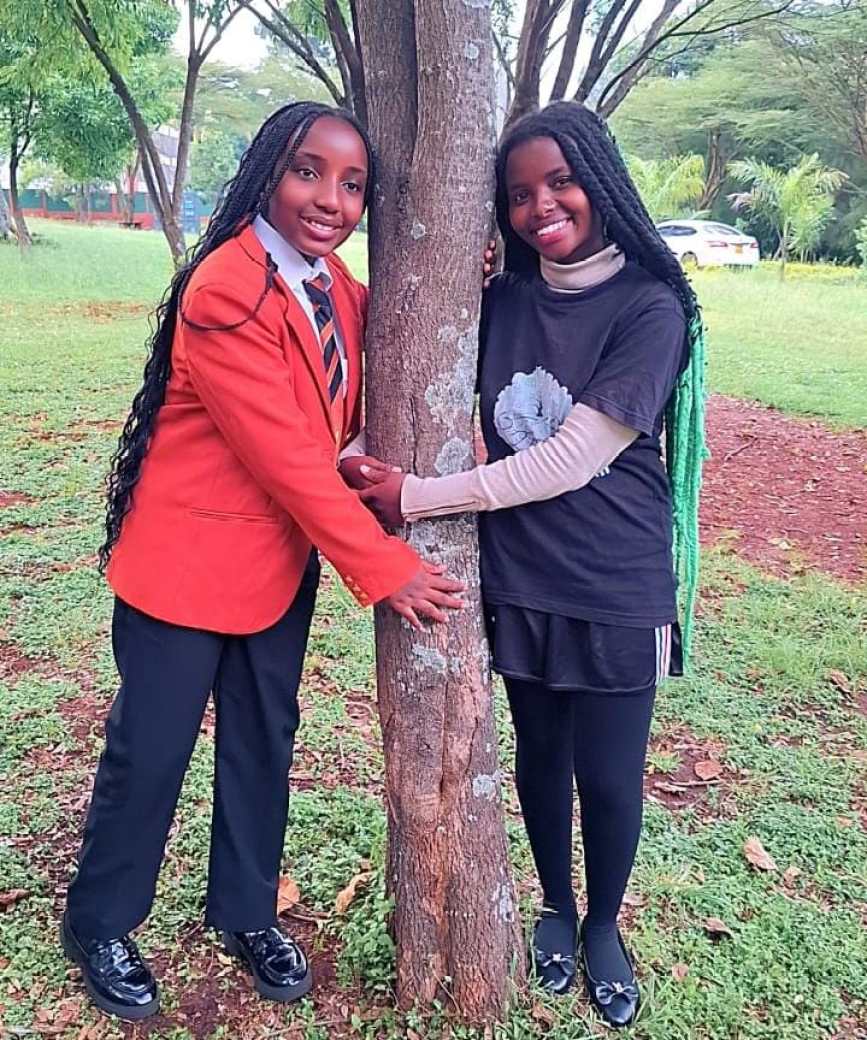The Elgeyo Marakwet National Environment Management Authority (NEMA) County Director Stephen Kimutu has called on area residents to uproot all exotic trees planted within wetlands and riparian land.
Kimutu also called on residents to stop any human activities, including agriculture and brick making, which he said were illegal according to the Nema Act.
Speaking during celebrations to mark World Wetlands Day at Lolkarin Wetland and Dam in Keiyo South on Friday, Kimutu said it was an offence to undertake any development activity or introduce any foreign species within wetlands, saying they should be left with the natural vegetation.
The director said indigenous trees and not exotic trees should be planted on the riparian land and not within the wetlands.
The director explained that wetlands were more important than rivers in that they regulate the flow of water by storing the precious commodity and then releasing it slowly, ensuring that people downstream get water all year round.
He added that wetlands were natural water purifiers, as water carrying impurities which flowed to the wetlands, including sewage, fertilisers, and chemicals, were purified before being released.
“The natural vegetation within wetlands takes in all the chemicals from the water within the duration it is stored, thus serving as a natural water purifier,” he said.
The director said interfering with wetlands was tantamount to committing genocide, as it can kill the livelihood of thousands of people living downstream.
Kimutu said the conservation of wetlands will benefit the locals, saying they can use the grass not only to graze their livestock but also to roof their houses, but advised them to ensure they control the grazing.
The County Conservator, Paul Koech, said Elgeyo Marakwet was like a water tank which supplies water to Lake Turkana and Lake Victoria, adding that the water goes up to Egypt and therefore the need to conserve water bodies and the environment in general.
Noting that residents had large farms, the conservator advised them to plant wattle trees, which they could use for charcoal instead of invading forests.

Area Deputy County Commissioner Diana Wekesa said while riparian landowners have a right to their land, they are required to follow the law in the management of wetlands, warning that ignorance of the law was no defense.
She assured them that the government does not have any intention of taking their land within wetlands, but they should manage it well, knowing that any activity affects many people.
She called on residents to take it upon themselves to buy seedlings and plant trees instead of waiting for free seedlings from the government.
“A seedling only costs sh10, which is quite affordable. If we set a target of buying two seedlings per month, we will have spent Sh240 per year and planted 24 trees. We should also impress upon our children to be doing the same using their pocket money instead of buying snacks,” she said.
By Alice Wanjiru and Joan Jelimo









